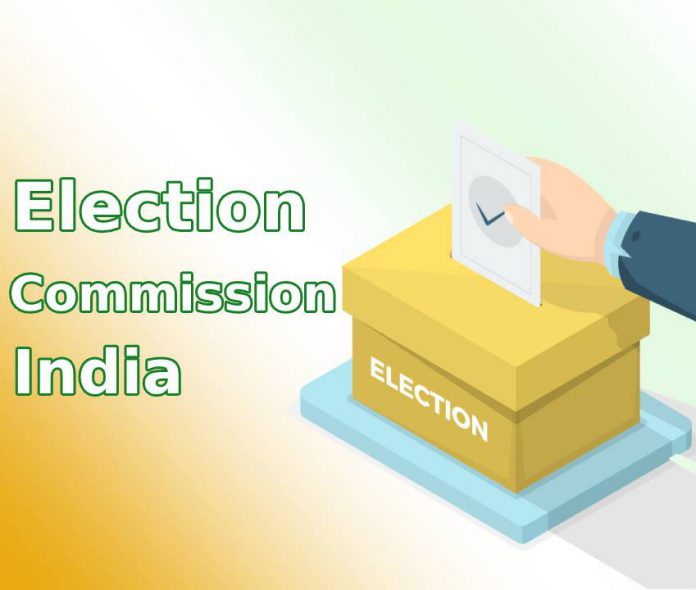A Comprehensive Guide On Election Commission Of India!
The election commission of India is a kind of constitutional body, which helps to manage the process of elections. This constitutional body works according to the constitution of India. The setup of the election commission in India was made on 25th January 1950, and the primary purpose of it is to define and control the process of elections. The process of election gets administered by the president of India to the state legislative assembly.
As per section 324 of Indian Constitution, the election commission of India has full control on the entire, complete process of elections to the Parliament and legislature of all the states and the office of President and Vice President of India.
Structure of ECI
The election commission of India consists of One chief Election Commissioner, two other Election Commissioner, and other members work on the power of the votes.
Appointment of Commissioner
- The president of India hires the Chief Election Commissioner and the two other Election Commissioner
- Each Election Commissioner controls and directs their office for 6 years, or till the age of 65, whichever comes first
- The Election Commissioner is paid the same salary as the Supreme Court Judge receives.
- The only way to remove the Chief Election Commissioner is to get an order from the president of India with the support of Parliament.
- The Chief Election Commissioner has the power to remove the Regional Electional Commissioner or Election Commissioners.
Advisory and Quasi-Judicial Powers
- When it comes to the post-election ineligibility, the Election Commissioner has the advisory jurisdiction of the members sitting in the parliament and the Legislature of State.
- If the members of Election Commission India, or anyone committed any false activity related to elections, which is declared by the Higher and Supreme Court; then Election Commissioner of India will take action for that. Those members will be held over to the ECI. The punishment is decided for that person by the Election Commissioner of India with the binding on President of India and Governor as per jurisdiction
- As per the Law, the Election Commissioner of India has the full power to ban the candidate who fails to lodge an account of election expenses within the deadlines
- As per the law, the ECI has the power to remove or reduce the period of disqualification
Administrative Powers
- ECI has the power to allot territories for the electoral constituencies
- The Election Commissioner of India amends and organise the electoral rolls, and register the eligibility of the voters
- The Commissioner informs about the dates and other details of the elections. They also analyse the election nomination paper
- They recognise the parties for election and assign them election symbols
- The Election Commissioner of India appoints:
- Chief Electoral Officer
- District Electoral Officer
- Returning Officer
- Electoral Registration Officer
Role of Election Commissioner of India
The primary purpose of the Election Commissioner of India is to organise the elections. As per the rules and regulations of the code of conduct, it is the Election Commissioner Duty to get the free and fair elections done. The ECI monitors and analyses all the activities are done by the parties and the candidates who are supporting them.
Functions of the Election Commissioner of India
- The Election Commissioner of India is responsible for free and fair election organisation
- The Election Commissioner of India ensures that no political party and candidate will commit any false malpractice under the rules and regulations of code of conduct
- The Election Commissioner of India is the person who fixed the expenditure made by the parties for their election promotion. ECI even monitors, that the fixed amount is used or something wrong is not happening
- The political parties have to submit all the election details at the end of the year to the Election Commissioner of India so that he can analyse the tax benefits of the contribution
- The Election Commissioner of India ensures that all the political parties will submit their financial reports to the Commissioner on time
Primary duties of the Election Commissioner of India
- Supervise and control the elections going on in Parliament and Legislature
- Set the general rules for the elections, so that no false activity will be done
- Prepare the electoral rolls
- Analyse and determine the territorial distribution in the constituency
- Allot the symbols to the political parties
- The Election Commissioner of India gives credit to the political party
Mode of Conduct
At the time of the election held in India in 1971, the Election Commissioner issued a model of conduct. The mode of conduct is being revised to set on the guidelines, to show how the political parties and candidates should prepare themselves for elections.
A provision is passed during the time of election by the commission, ministers, and other authorities that, no party can make promises to the public such as the construction of roads, meeting with the political party, meeting with any Governor, and other types of promises, which influence the voters to vote for them.
Instead of accepting the rule, the parties came into violation due to this rule. A very common complaint came for the ruling party to use the government machinery for their personal purpose.




















